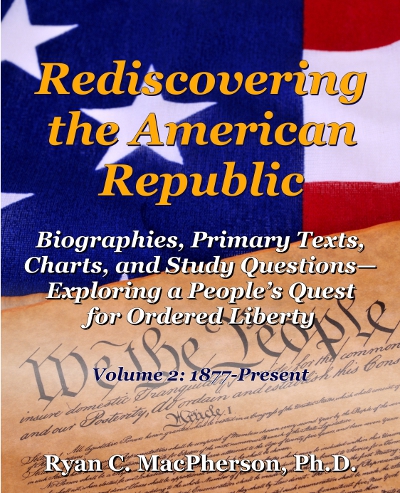Let’s look at both sides of this debate by summarizing what people say in support of their conclusion, whether that conclusion favors or opposes vaccination.
Seven Reasons Why People Support Vaccination
In general, people choose to vaccinate themselves and/or advocate that others get vaccinated for one or more of the following reasons:
- Medical Advice: Their doctor tells them to do so (and in the wake of COVID-19, just about everyone else is promoting the “get vaccinated” message, too).
- Vaccine Efficacy: They think vaccines have a good track record for preventing diseases, since they’ve seen charts of the downward trend in infection rates that correlate with previous mass vaccination campaigns. Often they have in mind effectiveness not only for individuals but for the population as a whole—herd immunity.
- Disease Severity: They are afraid of getting sick or dying or spreading diseases to others if they fail to get vaccinated, since they have heard about instances in which life-long complications or death results from infection.
- Vaccine Injuries: They have little to no concern for potential side-effects of vaccines, since they’ve been reassured by people or institutions that they trust that vaccines are safe, or at least that the benefits outweigh any harms.
- Natural Immunity: They have little to no trust in natural immunity against this particular disease, and they think that vaccine-conferred immunity is far superior.
- Abortion-Dependent Vaccines: They either are unaware that human fetal tissue has been instrumental in the production of most vaccines, or else they don’t care—and if they don’t care, it is either because they are pro-abortion anyway or else because they think that since those abortions happened in the past, there’s nothing wrong with benefiting from those abortions in the present.
- Mandates: They feel they have no other choice, since the law requires vaccination for their children to be enrolled in school, or since their employer requires vaccination for them to continue working, etc.
Seven Reasons Why People Choose Not to Vaccinate
In general, people choose not to vaccinate themselves or their children for one or more of the following reasons:
- Medical Advice: Their doctor shares one or more of the following concerns about vaccines in general (items 2 through 7), or their doctor usually recommends vaccines to other patients, but for this particular patient the doctor recognizes a condition for which vaccines would be medically contraindicated. In other words, their doctor takes a patient-centered approach, rather than a population-centered approach.
- Vaccine Efficacy: They question whether vaccines are effective in presenting infection or contagion, having read, for example, that many of the historical success stories have to do with diseases that already were on the decline due to natural herd immunity, and the vaccine merely finished off the downward trend; they also note that people who have been vaccinated still seem nervous about their own vulnerability until all their neighbors also get vaccinated, suggesting that even the vaccinated population does not fully trust in vaccine efficacy.
- Disease Severity: They are only minimally concerned about contracting or spreading the disease in question, since they consider the chance of infection to be low or the effects of the illness to be relatively minor or short lived.
- Vaccine Injuries: They have deep concerns about adverse side-effects, usually because of the prior experiences of their own families or their friends’ families, or else because they have followed the case files of the National Vaccine Injury Compensation Program.
- Natural Immunity: They trust in natural immunity, or in more natural approaches to boosting immunity (including herd immunity), such as nutrition or homeoprophylaxis.
- Abortion-Dependent Vaccines: They are aware that most vaccines depend upon the murder of innocent and vulnerable human babies (by abortion in some cases, but in other cases by vivisection of prematurely delivered babies—live abortions by Cesarean section), and they find it morally reprehensible to participate as beneficiaries of those abortions by receiving a vaccine produced in that manner.
- Mandates: Even if mandated by the government or their employer, they will assert their right to medical freedom, such as by taking the matter to court on the basis of a First Amendment conscientious objection or Fourteenth Amendment right to bodily autonomy.
A Third Option?
Just because the preceding discussion divided everyone into two camps, for or against vaccination, does not mean there can’t be a third option—or even a fourth.
Some parents choose to have their children injected with some vaccines but not with others. For example:
- They may conscientiously object to abortion-derived formulations, while granting careful consideration to alternative formulations.
- They may doubt their infant needs a vaccine against a sexually transmitted disease (e.g., Hepatitis B) when born into a chaste marriage, or that their teen who has been raised for chastity needs such a vaccine (e.g., HPV).
- They may recall chickenpox as a rite of passage conferring lifelong immunity, and find that to be preferable over the short-term immunity conferred by the Varicella vaccination.
Once they’ve reduced the CDC recommendations down to a list appropriate to their families, parents may choose to space out the remaining vaccination schedules, seeking to avoid overburdening an infant’s or young child’s immune system with too many injections at once.
Ultimately, the best application of informed consent will consider all seven reasons listed above for each major side in the vaccine debate, plus several middle options as just noted. So, be sure to consider each of those seven issues, scrutinize the evidence, apply some logic, and then draw a well-supported conclusion. Here are some resources to get you started.
Dr. Ryan C. MacPherson is the founding president of Into Your Hands LLC and the author of several books, including Rediscovering the American Republic (2 vols.) and Debating Evolution before Darwinism. He lives with his wife Marie and their homeschooled children in Casper, Wyoming, where he serves as Academic Dean at Luther Classical College. He previously taught American history, history of science, and bioethics at Bethany Lutheran College, 2003–2023 He also serves as President of the Hausvater Project, which mentors Christian parents. For more information, visit www.ryancmacpherson.com.


